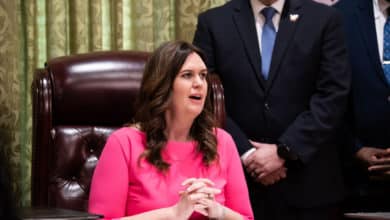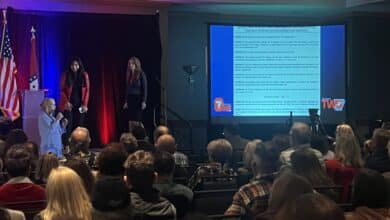By Conduit for Action
Revised 8/13/2021
Governor Asa Hutchinson called a special session of the legislature. During the special session, legislators filed resolutions seeking approval to file bills on four more issues that were not on the Governor’s call. If the resolutions had passed, the constitution allows up to fifteen days to consider and vote on bills on the subjects. The two most impactful resolutions sought approval to consider legislation on:
- Banning schools from teaching the controversial Critical Race Theory (CRT). The theory has been highly criticized as itself being racist and sanctioning a certain brand of racism. Earlier this year CRT was banned in state agencies but the law doesn’t apply to local school districts teaching the flawed theory. (Sen. Garner)
- Providing protections for citizens whose employers are making them choose between taking a COVID-19 vaccine or losing their jobs.. (Sen. Ballinger/ Rep. Bryant)
Senator Bob Ballinger said he was assured by legislative leaders there would be time to vote on the resolutions after they completed consideration of the items on the Governor’s call.
 Instead, the Senate adjourned without voting on the resolutions. With the Senate adjourned, the House also adjourned. The motion to adjourn the Senate passed with the bare majority of eighteen votes out of thirty-five. The Senate’s adjournment caused a firestorm. Some supporters of the resolutions claimed the Senators who voted for adjournment were, in essence, voting against the proposals.
Instead, the Senate adjourned without voting on the resolutions. With the Senate adjourned, the House also adjourned. The motion to adjourn the Senate passed with the bare majority of eighteen votes out of thirty-five. The Senate’s adjournment caused a firestorm. Some supporters of the resolutions claimed the Senators who voted for adjournment were, in essence, voting against the proposals.
Clearly the seven Democrats and the one independent (who votes with the Democrats) voted to adjourn because they opposed the measures. But it also took ten Republicans to support the motion to adjourn. Why did they vote to adjourn?
Senator Ben Gilmore was one of the Republicans who voted to adjourn. He talked to Conduit News and said he voted to adjourn because the legislature needs more time to vet the ideas. He noted the legislature will be in extended session this fall and the Governor plans to call another special session this fall.
Senator Bob Ballinger saw the adjournment differently. He wanted to file a bill to help people who are being forced to choose between having to take a COVID-19 vaccine or losing their jobs. Ballinger was critical of his Republican colleagues who voted to adjourn. On his Facebook page he said:
“The truth is there’s two extremely powerful forces in Arkansas. One is the people. The problem is they’re just a little less powerful than the other powerful force – and that’s essentially the big businesses that I think have too loud of a voice. And the truth is that most legislators didn’t want to get caught between the two. They didn’t want to be caught between the people they represent and the individuals that cut checks for their campaign. And so, in short, the option was to go ahead and adjourn and not hear any motions. That was not – I visited with leadership on the Senate side; we visited with leadership on the House side. It was made clear that we were going to have an opportunity to hear these motions, the Constitution actually provides for that, but the body didn’t want to have to hear those motions. The body didn’t want to be put on the record for voting to protect their constituents and voting against the people who are most engaged in supporting their campaign.”
There are basically four views on why some Republican Senators voted to adjourn. We will let you decide which is the most likely reason or reasons. (By the way we added a fifth reason.)
- The Senator is against banning CRT in schools and opposed to trying to help people who don’t want to take the Covid-19 vaccine but who will lose their job if they don’t get the shot; or
- The Senator was being “pragmatic” in adjourning because there was not enough support to get the two-thirds vote in each house. As for this claim – if true, that means some Republicans would have voted against considering the bills. There are not enough Democrats and independents to prevent approval by a two-thirds vote when Republicans stick together; or
- The Senator didn’t want to have to take a position on the issues because their constituents are on one side and big business on the other side; or
- The Senator needed more time to vet the bills.
- And we add …. If the Senator hadn’t voted to adjourn, Asa was going to redraw the Senator’s district into the district of a stronger incumbent and away from supporters.
Regardless of their reason (or reasons) for voting for adjournment, their actions have consequences for Arkansans. And that is what we will discuss below.
CRITICAL RACE THEORY
Let’s first consider the effort to ban teaching of the flawed Critical Race Theory (CRT) in public schools. The adjournment makes it very unlikely the legislature will be able to consider the issue of banning CRT from public schools before 2023. If so, that means two school years will go by in which woke teachers can teach the divisive theory.
Let us explain why it is unlikely the issue will be considered by the legislature before 2023:
- Extended Session this fall. Consideration of CRT is not listed as one of the subjects that may be considered in the extended session. The resolution extending the session is HCR1015. (The items allowed to be considered under HCR1015 appear below in the notes.)[i]
- Special Session this fall. Governor Hutchinson seems too woke to add the issue to his call for a special session. This means the legislators who want to ban the racist teaching would have to try again to get the issue added at the end of the special session by a two-thirds vote. To our knowledge the legislature has never approved adding an issue to a special session. And remember, just a simple majority vote to adjourn derailed the issue in the recent special session.
- Fiscal Session in early 2022. The legislature is allowed to consider non-budget items in the Fiscal Session but to do so requires a two-thirds vote by the House and Senate. We are not aware of any instance in which a non-budget item has been approved for consideration in a Fiscal Session.
- Regular Session 2023.The next opportunity for a legislator to file a bill on any subject without having to first get approval by a two-thirds vote is the 2023 regular session.
FORCED TO CHOOSE BETWEEN A SHOT OR BEING FIRED
What about the proposal to provide relief to people who are now being forced to choose between vaccination or being fired? It appears possible for legislators to file bills on the issue during the extended session. The extension resolution says the legislature may consider “legislation related to the COVID-19 public health emergency and distribution of COVID- relief funds” which this is.
But what are the consequences of having to wait until the extended session this fall? Every day more and more people are faced with the choice of taking a shot they may not trust or losing their job. For them, the legislature has failed.
If the issue is not resolved in the extended session, then the issue may not get resolved until the 2023 regular session of the legislature. To consider the issue in the next special session or the 2022 Fiscal Session still requires approval of by a two-thirds vote of each house even before voting on the merits of the legislation.
Do you agree or disagree with the Senators who voted to adjourn despite the consequences of not considering the issues?
Here is how the Senate voted on adjournment.

[i] HCR1015 of 2021 says:
(g) THAT the President Pro Tempore of the Senate and the Speaker of the House of Representatives may, by joint proclamation:
(1) Reconvene the General Assembly at any time for the purpose of:
(A) Considering vetoes;
(B) Correcting errors and oversights;
(C) Completing its work on congressional redistricting;
(D) Considering legislation related to the COVID-19 public health emergency and distribution of COVID- relief funds; and
(E) Considering the need for further extension of the Regular Session of the Ninety-Third General Assembly; or
(2) Adjourn sine die the Regular Session of the Ninety-Third General Assembly;






